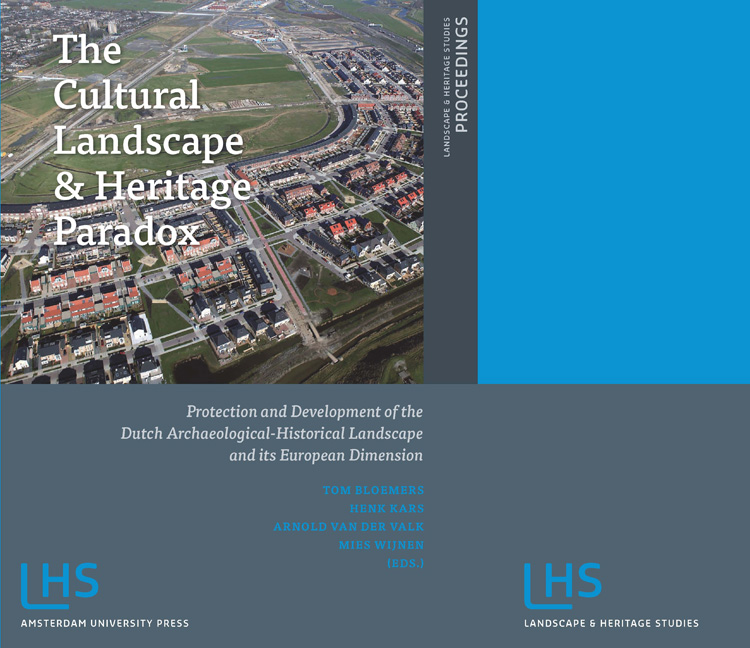 The Cultural Landscape and Heritage Paradox
The Cultural Landscape and Heritage Paradox Book contents
- Frontmatter
- Contents
- Preface
- I INTRODUCTION
- II INSIGHTS AND PROSPECTS OF ARCHAEOLOGICAL-HISTORICAL LANDSCAPE STUDIES
- III LINKING KNOWLEDGE AND ACTION
- IV IMAGINATION - FACTS AND CONSTRUCTIONS
- V SHARING KNOWLEDGE - STORIES, MAPS AND DESIGN
- VI SYNTHESIS AND CONCLUSIONS
- VII MANAGEMENT OF KNOWLEDGE
- VIII AGENDA FOR THE FUTURE
- IX SUMMARY
- X APPENDIX
- Subject Index
- Index of Places and Regions
6 - ‘Changing Landscapes’: an Interdisciplinary Danish Research centre
Published online by Cambridge University Press: 21 January 2021
- Frontmatter
- Contents
- Preface
- I INTRODUCTION
- II INSIGHTS AND PROSPECTS OF ARCHAEOLOGICAL-HISTORICAL LANDSCAPE STUDIES
- III LINKING KNOWLEDGE AND ACTION
- IV IMAGINATION - FACTS AND CONSTRUCTIONS
- V SHARING KNOWLEDGE - STORIES, MAPS AND DESIGN
- VI SYNTHESIS AND CONCLUSIONS
- VII MANAGEMENT OF KNOWLEDGE
- VIII AGENDA FOR THE FUTURE
- IX SUMMARY
- X APPENDIX
- Subject Index
- Index of Places and Regions
Summary
ABSTRACT
This paper discusses issues of interdisciplinarity, multidisciplinarity and transdisciplinarity on the basis of the experience of the Danish Changing Landscapes Centre (1997-2002). The conclusion is that interdisciplinary research needs time for the involved researchers to evolve relevant research questions involving all disciplines. Multidisciplinarity is generally the most appropriate word to use to characterize the centre's research. Interdisciplinarity was unfolded within the six research projects, resulting in a book on five interdisciplinary research issues involving selected researchers. The research centre was strategic, involving governmental research institutions and museums, and in addition background groups were established with researchers, administrators, landowners and organizations, but on this basis no real transdisciplinary research was made. The centre was a success because all multidisciplinary goals were reached and interdisciplinarity was reached at a certain level. Good co-operation existed between the widespread researchers and this continued after the centre closed. Unfortunately, the political situation changed shortly after, so that the synergetic effects of this good co-operative basis could not be used because funding for environmental research was radically cut back. This is clearly the disadvantage of temporary research centres.
KEY WORDS
Multi-, inter- and transdisciplinarity; strategic environmental research; open research centre, research coordination
PROJECT DESIGN
‘Changing Landscapes’ (in Danish: Foranderlige Landskaber) was a research centre established for the period 1997-2001 by a grant from the Danish Strategic Environmental Research Council (c. 40 million kroner in total, corresponding to c. 5 million euro). In Danish terms the word ‘strategic’ means applied or political and therefore the resulting research was primarily intended for a national audience in national governmental institutions and universities and an international research public. The purpose of grants in this programme was to fulfil strategic research purposes as basic research aims. The background for the Danish Strategic Environmental Research Programme was to pool research means from various ministries and traditional research councils in common programmes aiming at a wide range of environmental research themes. Furthermore it was aimed at achieving synergetic effects of research which would never be achieved on the basis of existing research institutions and research means.
- Type
- Chapter
- Information
- The Cultural Landscape and Heritage ParadoxProtection and Development of the Dutch Archaeological-Historical Landscape and its European Dimension, pp. 577 - 584Publisher: Amsterdam University PressPrint publication year: 2010


